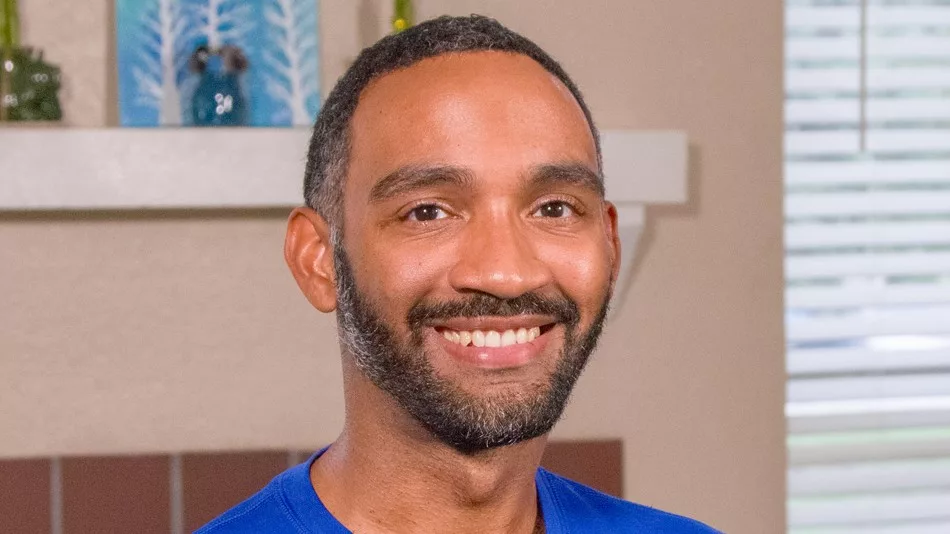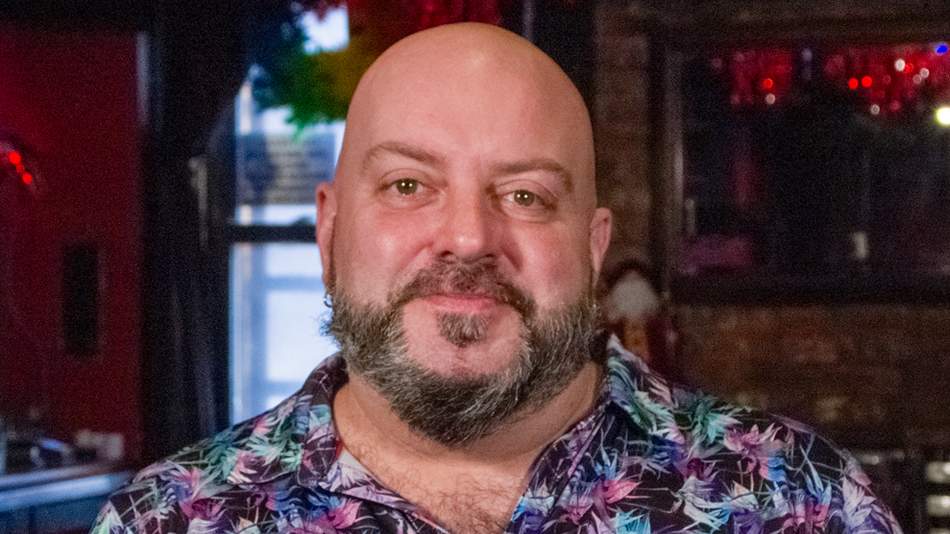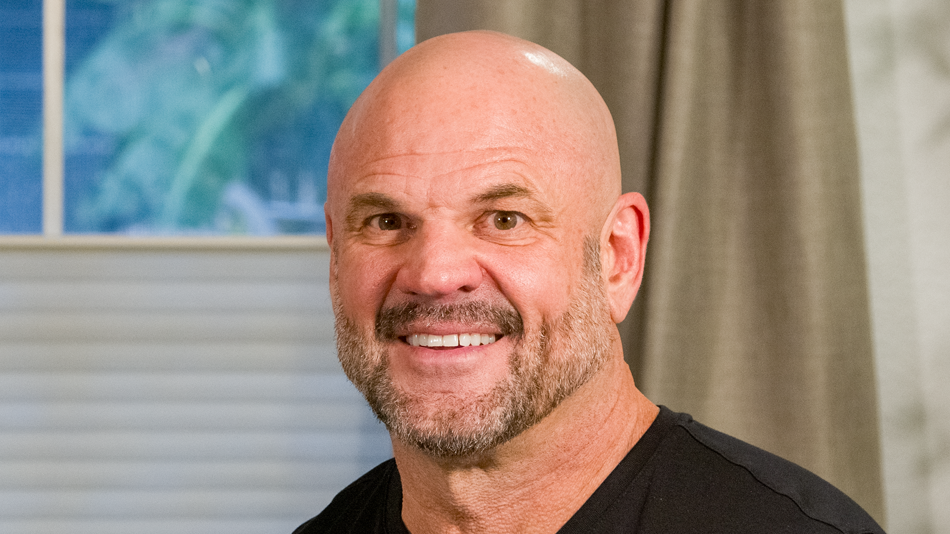
“How old are you?” she asked me.
“Eighteen.”
“You look twelve. Is this your first time at a gay bar, Mr. Eighteen? They can’t hear you, honey.” She pushed the microphone closer to my mouth.
“Yes.”
“Ladies and gentleman, we have a virgin.” The bar let out a singular, affable roar. I still believe that Florida’s drag queens are the best in the country. I haven’t met one who doesn’t have a preternatural sense of who needs to be singled out and doted on. “What’s your name, babydoll?” she asked me.
“Zack—I’m not a babydoll.”
“Sorry. Babyactionfigure. Why are you sitting on the floor, Zack? Honey, you have got to speak up.”
“No chairs.”
“You look like a chair yourself, Zack.”
—-
Telling people that I had a drag queen sit on my head on my first trip to a gay bar and announce to the room that she was “rubbing (her) taint on a twelve-year-old” has become a regular party anecdote for me—even when I often have to sputter something mollifying afterwards to answer the looks of horror the story can get. Usually these come from straight people, and sometimes queers from the north-east and west coast. Southerners and New Yorkers tend to get the point a little better, and respond with their own coming-of-age drag queen stories.
—-
“We want to know if it’s real,” Adam said. The go-go “boy”, who was probably just under twice my age, gave us an impregnable look from behind his aviators. “Five bucks,” he finally offered.
Adam and I conferred. “We have three,” I said, holding the bills up. “And I probably have four quarters, too.” The dancer sighed, but he was smiling when he kneeled down and pulled my hand to his thong. It took all my concentration just to deposit the money between his thigh and the elastic, and the dancer was already looking at Adam. That hadn’t taken long.
The dancer then confirmed for us that it was, in fact, real. Adam reached in for tactile proof. I was stilled enough by the sight of it, and of the two boys floating in the lenses of the dancer’s aviators like ancestors watching over ourselves.
I was supposed to meet Pete here, but Pete was gone now. He’d come out to his mom, at my urging, and she freaked out and sent him to a religious institute across the city. Pete had only come out to her because of me—because he liked me. I didn’t tell him this, but his coming out wouldn’t have changed my mind. I didn’t say it would, either, but I knew that’s what he’d been thinking, and I let him think it. I just wanted an ally and commiserator at school. And I wanted to feel like a hero, too. Learning that I made physical, psychic, and political changes in the people around me by talking, touching, or even merely by taking in air, was a painful lesson. The responsibility of existing carries new weight in adolescence—especially so in a leaden city like Jacksonville. My friends and I were too smart and too sensitive for the town (and maybe, I considered quietly, for my own life).
—-
There’s a whole army of young, queer southern emigrants who were raised in the dive bars in or near their home towns. The names of these places are usually innocuous enough, if a little preciously epic (Metropolitan, Pantheon, Purgatory, and Avalon are some examples). But the bars are infamous within their communities. Growing up, even hearing the names of these spaces thrown out in a derogatory way would evoke an excited, sensory reaction. To believe that there were sites of queer desire, worlds where I could stumble into the impossible, was enough to evoke a little precious epic reaction of my own. The bars were usually pretty serious about keeping the underage out (my friends from Jacksonville have offered me many exceptions to this statement), so I never went before legally able. But by the time I was, I was out at least once a weekend, with a mostly-static group of other guys my age. We dated older guys and flirted a free drink now and then, but often our time spent at the bars was on the dance floor, and if that wasn’t available, just standing and sitting around, practicing at the lives nobody ever told us we were allowed to have.
—-
“I’m going to give him my phone number,” Adam told me, watching the go-go dancer from across the bar.
“He looks retarded,” I said, and knew immediately I sounded childish.
“Even the retarded need someone to love,” he said, and stood up.
I texted my friend Sarah What’s up? and sipped my coke, hoping some old man would hit on me so I could act disgusted later to Adam.
But things were going well with the dancer. I swallowed my envy for the moment and texted Sarah again. At my 1st gay bar!!!
That afternoon I’d told Adam that I loved him. Not in so many words. I figured “What did you think of me when we first met?” got the point across. Adam had turned to me then thoughtfully. He was half Filipino and half black, with an early, unkempt mustache that drove me insane with desire.
“You know,” he said, “I actually thought you were cross eyed. It wasn’t until we met the second time that I figured out you were just shy.”
I would have told Adam he was playing a dangerous game with people’s hearts and stormed out, if I hadn’t needed him to drive us that night.
Just before I left for college, Adam joined the Army Reserve. Last I heard, a colleague of his had been kicked out because she was a lesbian. A woman she’d rejected (who was straight and married) had outed her to her superiors. He deals with these outing scares occasionally, every couple years or so, when he and the other gay service members he knows live a hushed panic. He told me they have to be careful about whom they turn down, and how.
—-
The gay bars I visited in Florida and those up north have some stark differences. When bastions are fewer and further between, they tend to be more integrated, and more aware of the needs of those present. At bars I visit with friends in the city, I can usually count representation of non-whites and lesbians on one hand. These people do live here, and do go out, but they go to different bars or special events set aside for them. Often they don’t feel welcome, or attractive, at the places white men go to drink and meet.
—-
My phone buzzed. Sarah was calling, rather than texting, and I felt some relief in knowing I had to stop watching Adam flirt, and step outside to take the call.
“This place is so much fun!” I answered a little eagerly when I made it through the doors.
“Jonathan is in the hospital,” Sarah said.
“What? What happened?”
“Some guys at the gas station near school asked him if he was a faggot.” Jonathan was Sarah’s boyfriend. He wasn’t gay, but he was definitely non-conforming in his dress. Jonathan was one of the few genuinely nice straight guys I knew in school, who had been kind to me since I’d come out.
“He didn’t answer them and they beat the crap out of him.”
“Jesus. Is he okay?”
“Yeah.” Sarah was crying. “He looks pretty terrible. He’ll be out of school for a couple months.” Months.
“Sarah—”
“I’m going to the hospital now. I’m sorry to spoil your fun night.” She made that heartbreaking gesture of laughing while you are still crying. “Listen, really, have a great time. Call me tomorrow and we can talk more.”
“Sure.”
—-
Of course there are dangers in the dive bars of small towns. Friends of mine have been assaulted, manipulated, and introduced to some life-altering addictions. After I left for college, that first bar I ever visited was part of a huge cocaine bust by the Jacksonville police department. That cocaine was probably being used in every bar in the city isn’t lost on me—Jacksonville’s cops have an unblushing habit of targeting queer and black institutions. And being the pariahs of a society meant that we had less to lose. If the gaze toward us was already condemning, there was less incentive, or caring prohibition, to keep us from being bad.
But this is just to make it clear that I know not everyone is safe in these spaces all the time. For the most part—for me—the dive bars of my emerging adulthood were the only safe spaces (outside of the back seat of a car) where queer affections and sensibilities could really come to some kind of fruition, and we could feel a sense of public “pride” without a real, immediate physical threat. I will probably always feel more comfortable in the dank places where old men who have earned the freedom to be trolls sit and stare at you, and where you can spot a “thug” pinned to the wall by the skinny white boy who’s making out with him, than in the peach-infused martini bars of New York.
But a dive bar isn’t a city. I could never move back to Jacksonville. New York is a place defined largely by its transforming population, and the people who escape there. Few of the young gay guys I know are from here. Many are from red states—communities that had no idea (or too good an idea) what to do with them. A north-easterner friend once sneered at the idea of coming to the New York gay pride parade with me. He didn’t understand what there was to be so proud about.
“It doesn’t define me,” he’d said. “Why would I want to hang around gay trash and be advertised alcohol and porn all day?”
Selective corporate sponsorships aside, I can think of plenty of reasons to muddle in the street with the trash, the most urgent being that I am the trash, and this does define me. And that, once a year, it’s a real treat to be reminded I live in a city that, for all its problems, addictions, and assaults, cares that its trash knows it has a space here.






Share